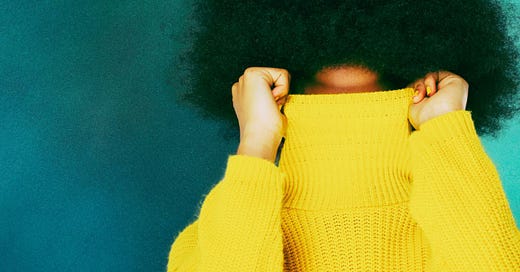Are Legal Protections for Afro Hair Necessary?
The Irony of Preferential Treatment in Equality Laws
Labour has been juggling a long list of priorities since coming into power over 60 days ago. The ongoing cost-of-living crisis continues to affect many households. The National Health Service remains under severe strain, struggling with long wait times and staff shortages. Immigration remains a contentious issue, with debate focused on its effects on public services and social integration. Meanwhile, concerns about crime and disorderly behaviour persist across many communities.
Yet, against this backdrop of urgent national issues - each demanding immediate and decisive action - a Labour MP has chosen to concentrate on updating the Equality Act to include Afro hair as a protected characteristic. Paulette Hamilton, supported by prominent black Britons like singer Mel B, is striving to make the UK the first Western country to enact a law specifically addressing “Afro hair discrimination.”
With so many challenges facing different communities and the nation as a whole, it seems misguided to expend political capital and energy on this issue. It also reveals, once again, a disconnect between some politicians' priorities and the pressing needs of the broader public. Social cohesion is fragile at the moment; focusing on such a niche issue only deepens existing divisions and further fragments society along these identity lines.
The Equality Act already provides robust protection against discrimination in the workplace and wider society, covering both direct and indirect discrimination based on certain protected characteristics. This protection applies to all individuals. Creating a new subcategory that prioritises the interests of a specific group clearly undermines the Act’s core objective of ensuring equal treatment for all, and instead promotes special and preferential treatment.
This initiative further exemplifies a concerning trend of people seeking to elevate their personal experiences to unwarranted levels of importance. Other expressions and terms like "the black experience" and "islamophobia" also reflect this. In today’s culture, it seems everyone believes their particular traits or challenges are uniquely deserving of special recognition and societal focus.
But where should we draw the line, and what is to stop other groups from seeking specific legal protections also? Should redheads, people who wear glasses, or those who are too short or too tall - often targets of teasing, stereotypes, and sometimes even bullying - also demand their own protected categories?
Over-categorisation harms society, as it causes people to fixate on their differences rather than their commonalities and humanity. These political campaigns do nothing more than feed into a culture of grievance, where people are encouraged to find and emphasise any perceived difference or disadvantage.
The reality is that many people face challenges or experience unfair treatment based on various physical characteristics or personal traits. Codifying every potential issue into law is both impractical and excessive. We also don’t need legal solutions for every perceived slight or misunderstanding. Following this path not only robs society of the opportunity to grow and adapt organically, but can overburden our already stretched legal system. Some issues can be resolved without the involvement of the state; and not every conflict needs to be escalated to a legal dispute.
It is also incorrect to assume that all Afro hairstyles are inherently professional or acceptable. Dress code standards vary depending on context and setting. For instance, a white male student with extremely long, “unkempt” hair might be deemed inappropriate by one school, while another school may have rules against mohawks. Similarly, certain hairstyles might be considered inappropriate for black students or any student, regardless of race. Implementing blanket protections for all Afro hairstyles compromises an institution’s ability to establish reasonable, race-neutral standards. While this issue is nuanced and does not lend itself to a one-size-fits-all solution, it certainly doesn’t require legal intervention.
At a time when public trust in politicians is already low, prioritising narrow, identity-driven agendas over broader issues further erodes confidence in the system. Such actions not only make groups who aren't the focus of the campaign feel neglected, but they also risk further isolating those the laws aim to protect. By continually adding more specific categories for potential discrimination, we create an environment where people become increasingly wary or unsure of how to interact with others for fear of legal repercussions. In other words, no one truly wins in the long run.
Ada Akpala will be speaking at a New Culture Forum locals event in Beaconsfield. Her talk will address the complexities of social cohesion in today’s world, examining how current approaches to identity, victimhood, and group politics contribute to social fragmentation. She will offer insights into how to reinforce common values and connections within our increasingly divided society.
The event is free and open to all. If you are already with NCF Locals please RSVP using this link. For other guests or others interested in attending, please write to locals@newcultureforum.org.uk
Thursday, 26th September 2024, from 7pm - 9pm (BST)







Are people like Paulette Hamilton and Mel B actually wanting to make the world a better place? I have to say, I don't think they are. Because more division and greater social fragmentation is the only possible destination for the track they're going down. I hope they will read Ada's excellent essay and come to their senses.
Unless it can be demonstrated that one's hair is detrimental to learning , and I have no idea how
that could be done, what possible difference does it make as to how anyone's hair should be a concern?
Make all hair protected not just Afro hair. This just seems to be taking a "dress code" far beyond what is necessary for education. Schools are not the military. Pink Floyd's Another Brick In the Wall would be appropriate here. https://vimeo.com/593916093